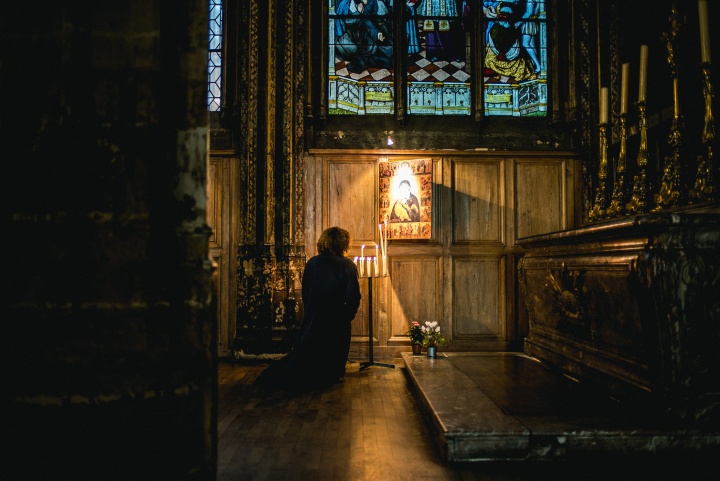Should We Pray to Saints?

Jesus Christ taught His followers to pray to "our Father in heaven" (Matthew 6:9), and the example throughout Scripture is that prayer is communication with God and part of our worship of Him.
What else does the Bible say about where prayers should be directed? Paul wanted the Roman church's "prayers to God" (Romans 15:30). Moses was to "pray to the Lord" (Numbers 21:7), and David sang to God that "to You I will pray" (Psalm 5:2). Christians can come directly to God's throne of grace (Hebrews 4:16), and the Bible clearly teaches that Jesus Christ intercedes for us (Hebrews 7:25). We don't need saints to do that.
Scripture shows saints (true believers) refusing to accept the worship of people (Acts 10:26; Acts 14:8-18). The Bible also tells us not to worship angels (Colossians 2:18), and it shows that angels refuse adoration and worship by humans (Revelation 19:10).
Notice also Revelation 22:9, where the apostle John saw in vision the time after the resurrection and fell down in awe at the feet of the being talking to him. "Then he said to me, 'See that you do not do that. For I am your fellow servant, and of your brethren the prophets, and of those who keep the words of this book. Worship God.'"
Righteous created beings, whether human or angelic, refuse to be worshipped and they point us to worship the Creator. Only Satan and his followers seek others' adoration and worship (Matthew 4:9; Acts 8:9-11; 2 Thessalonians 2:3-4).
In addition to all this, praying to dead saints today assumes the doctrine of the immortal soul, which many people are surprised to find is not taught in the Bible. The Bible teaches that death is like sleep that lasts until the resurrection at Jesus Christ's second coming (1 Thessalonians 4:13-16).
For more information, please read our booklet Who Is God?
